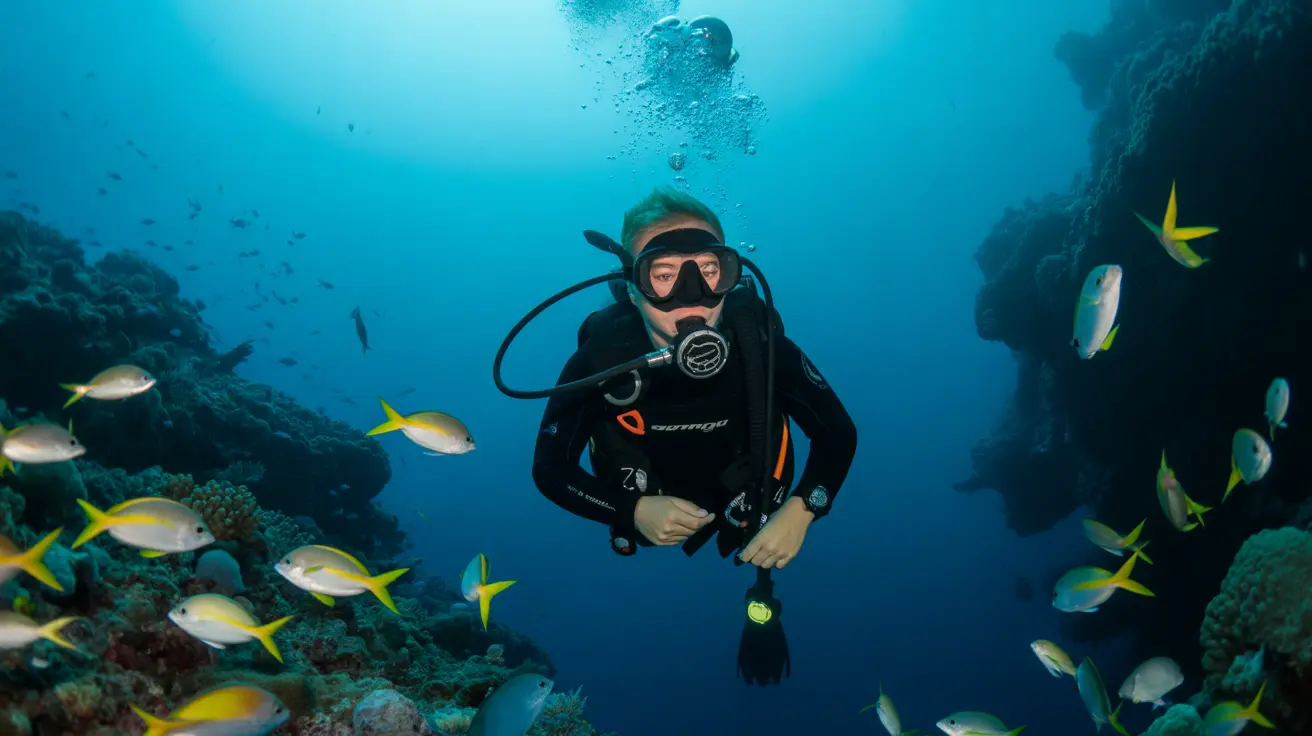Nitrogen narcosis is a potentially dangerous condition that can affect scuba divers, causing altered mental states and impaired judgment underwater. Often called "rapture of the deep" or "the martini effect," this condition occurs when breathing compressed air at depth causes nitrogen to have a narcotic effect on the nervous system. Understanding its symptoms and risk factors is crucial for diver safety.
What Causes Nitrogen Narcosis?
Nitrogen narcosis occurs when breathing compressed air under pressure at depths typically beyond 100 feet (30 meters). As a diver descends, the increased partial pressure of nitrogen in the breathing gas affects the brain's neural membranes, leading to narcosis-like symptoms. This effect becomes more pronounced with greater depth.
Recognizing the Signs and Symptoms
The symptoms of nitrogen narcosis can vary in intensity and may include:
- Euphoria or anxiety
- Impaired judgment and decision-making
- Delayed response time
- Poor coordination
- Confusion or disorientation
- False sense of security
- Inappropriate laughter or giddiness
These effects can be particularly dangerous because affected divers may not recognize their impaired state, potentially leading to poor decisions underwater.
Risk Factors and Prevention
Several factors can increase your susceptibility to nitrogen narcosis:
- Diving depth (especially beyond 100 feet)
- Cold water temperatures
- Physical fatigue
- Anxiety or stress
- Alcohol consumption before diving
- Certain medications
- Individual susceptibility
Prevention primarily involves proper dive planning and staying within recommended depth limits. Using specialized gas mixtures like trimix can also help reduce the risk for technical diving.
Treatment and Recovery
The primary treatment for nitrogen narcosis is ascending to a shallower depth. Unlike decompression sickness, nitrogen narcosis symptoms typically resolve quickly upon ascending, with no lasting effects. However, the temporary impairment while at depth can create dangerous situations requiring immediate attention.
Safety Measures and Best Practices
To minimize the risks associated with nitrogen narcosis, divers should:
- Plan dives within safe depth limits
- Always dive with a buddy
- Maintain good physical and mental condition
- Follow proper training guidelines
- Use appropriate breathing mixtures for deep dives
- Ascend slightly if symptoms occur
Frequently Asked Questions
What are the common symptoms of nitrogen narcosis that divers should recognize underwater?
Divers should watch for euphoria, impaired judgment, delayed responses, confusion, and poor coordination. These symptoms typically begin gradually but can intensify with increased depth.
How is nitrogen narcosis treated and how quickly do symptoms usually resolve after ascending?
Treatment involves ascending to a shallower depth. Symptoms typically resolve within minutes of ascending, with no lasting effects or need for medical intervention.
What factors increase the risk of experiencing nitrogen narcosis during a dive?
Key risk factors include greater depths (especially beyond 100 feet), cold water, fatigue, anxiety, recent alcohol consumption, and certain medications. Individual susceptibility also plays a role.
How does nitrogen narcosis differ from decompression sickness (the bends) in terms of symptoms and treatment?
Unlike decompression sickness, nitrogen narcosis symptoms resolve quickly upon ascending and don't require medical treatment. Decompression sickness involves gas bubbles in tissues and requires specialized treatment in a hyperbaric chamber.
Can nitrogen narcosis affect freedivers or only scuba divers using compressed air?
Nitrogen narcosis primarily affects scuba divers breathing compressed air. Freedivers, who hold their breath using air from the surface, generally don't experience nitrogen narcosis due to the different breathing dynamics involved.
Understanding and respecting the risks of nitrogen narcosis is essential for safe diving. Always dive within your training limits and respond appropriately if symptoms occur.




